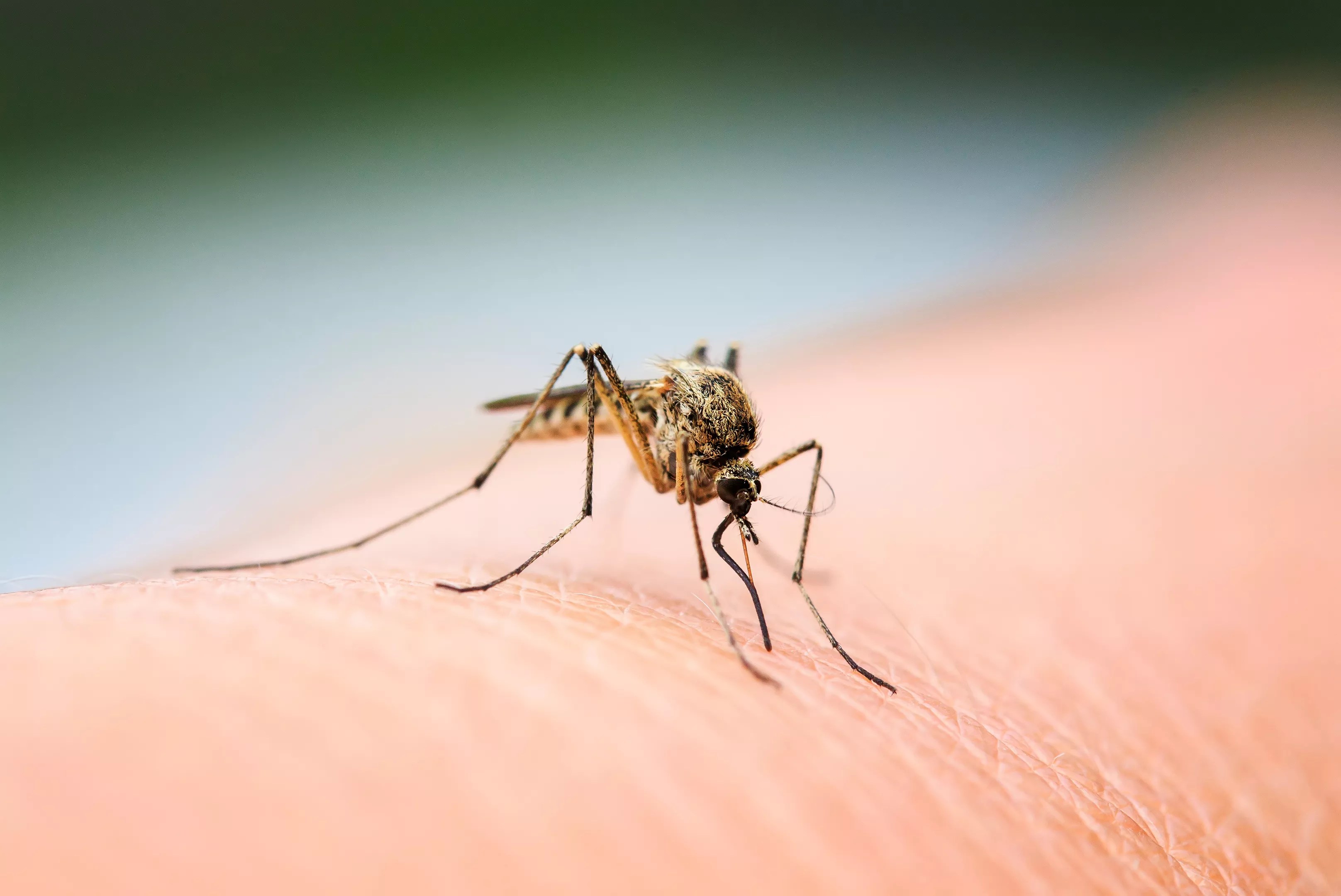
Adobe Stock

Audio By Carbonatix
Every year, a Biblical plague-level of mosquitoes descends upon the South, but instead of destroying crops locust-style, they feed on the naked legs of jorts-wearing backyard barbecuers. Ruining the merriment of outdoor summer festivities isn’t the only role mosquitoes play in our lives. They also carry several potentially deadly diseases, so the city has begun its annual mosquito control spraying to prevent the spread of West Nile virus (WNV) and keep Dallasites itching as little as possible.
Their attempts may be futile, though, as the city ranks among the top 10 “itchiest” in the nation, according to one report.
The city announced on June 9 that mosquito samples in Dallas tested positive for WNV and that areas in East Dallas would be continuously sprayed with insecticides. Other spray sites were announced in South Dallas throughout the week. This is not irregular; the city sprays almost every year, especially in rainy seasons, and even has a dedicated mosquito control program. The program prioritizes WNV, Zika and chikungunya, which are more likely to be found in the Southern United States.
“Dallas residents are urged to take precautions against mosquito bites by reducing outdoor activity during the evening and nighttime hours,” said a city press release. “Residents who are outside during these times should cover their arms and legs and use a mosquito repellent.”
Although not as wet as last year, Dallas had an unusually wet winter, with the most rainfall, 5.69 inches, in January in the previous 13 years. May was stormy too, falling just shy of 5 inches, meaning June was destined to be an itchy month. Stagnant water is essential to the mosquito life cycle, as it serves as a nursery for female mosquitoes to lay their eggs, so heavy rainfall in warm months will always spawn a mass of the winged vermin.
“Residents should eliminate standing water to prevent mosquito breeding and the spread of West Nile Virus,” said the press release announcing spray zones. “Breeding places for mosquitoes include swimming pools that are not kept clean, stagnant ponds, pet watering dishes, birdbaths, potted plants, old tires, empty containers, toys and clogged rain gutters and French drains. Eliminate standing water promptly, as mosquitoes can grow from egg to adult in as little as seven days.”
The itch from a mosquito bite is an immune response to the insect’s saliva, and research shows that mosquitoes are attracted to certain skin odors.
According to researchers at Ivarest, poison ivy experts, Dallas is the itchiest city in Texas, and the eighth itchiest in the nation, primarily due to the presence of poison ivy, which is native to our state. Somehow, Houston, with far more water than Dallas, came in at 15th on the itchy city list, right after Austin at 14th. Most Americans rank mosquito bites as their most significant source of itch, with 72% of those surveyed citing them as their top outdoor annoyance. According to Ivarest, 20% of Americans avoid their yards due to bugs, and 5% have even considered moving because of chronic outdoor discomfort.
Dallas Has Mosquitoes Under Control
For most, mosquitoes are just a buzzing nuisance, and they will hopefully meet their fate in a quick and devastating slap. However, for a tiny percentage, less than 1% or fewer than 200 people a year, a simple mosquito bite can become West Nile neuroinvasive disease and result in death. The very first WNV death of 2024 in the country occurred in North Dallas.
But mosquito-borne diseases used to be a real cause for concern in Texas and still are in other nations with much higher fatality rates associated with diseases like dengue and malaria. Yellow fever epidemics ripped through the Texas coastline in the 19th century. The epidemics peaked in 1867, when the mosquito-borne disease invaded Galveston and quickly spread, resulting in 4,000 deaths, 40,000 infections, and long-lasting economic damage, according to the East Texas History website.
“The disease would dramatically change many of these towns, as industries were slow to recover, prominent families never returned, and colleges began to think about relocating,” reads the excerpt from East Texas History on the 1867 yellow fever epidemic.
Though Dallas was spared the yellow fever tragedies that consumed East and South Texas, the city rolled out its first mosquito-mitigating mechanisms around the turn of the century.
“One of the first vector control actions occurred in 1902 when the creek in City Park was oiled to prevent the breeding of mosquitoes,” reads the city of Dallas website. “By about 1916, mosquito spraying commenced, and by 1931, rodent control began in earnest.”
Since then, mosquito-borne disease scares have been few and far between, but not nonexistent. The last scare was the 2016 Zika outbreak, with six reported cases in Brownsville, near the bottom tip of the state along the Mexican border. In 2012, there was a large WNV outbreak with a record-setting 1,868 cases concentrated in the Dallas-Fort Worth area. Since then, WNV has floated under 200 cases a year.
What You Can Do To Stay Itchless
To stay as itch-free as possible this year, mosquito experts and public health officials recommend good old-fashioned DEET, or mosquito repellent. It’s wise to follow the four Ds of mosquito prevention: drain all standing water, dress in long sleeves and pants at peak hours – dusk and dawn are prime mosquito feeding times – and defend yourself against bites with an EPA-approved DEET repellent.
If you see a spray zone in Dallas, the city recommends staying indoors to avoid direct contact with the spray.